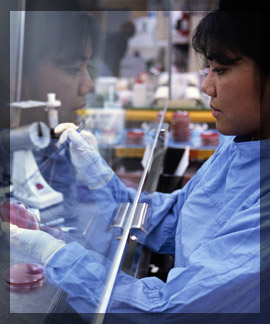Archival Notice
This is an archive page that is no longer being updated. It may contain outdated information and links may no longer function as originally intended.
Home | Glossary | Resources | Help | Contact Us | Course Map
Depending on the jurisdiction, the admissibility of DNA may be challenged if a new DNA technology or a novel use of existing DNA typing is involved (Frye) or if a question is raised regarding the reliability or validity of the testing (Daubert). When confronted with a demand for a hearing, the prosecutor should first determine the scientific issues upon which the challenge is based and contact the DNA analyst who performed the testing to discuss these issues. The DNA analyst's opinion on the validity of the issues raised is essential to resolving the challenge appropriately.
When confronted with a Frye or Daubert challenge, a prosecutor is encouraged to review the basis of the motion with a supervisor prior to responding.
Additional Online Courses
- What Every First Responding Officer Should Know About DNA Evidence
- Collecting DNA Evidence at Property Crime Scenes
- DNA – A Prosecutor’s Practice Notebook
- Crime Scene and DNA Basics
- Laboratory Safety Programs
- DNA Amplification
- Population Genetics and Statistics
- Non-STR DNA Markers: SNPs, Y-STRs, LCN and mtDNA
- Firearms Examiner Training
- Forensic DNA Education for Law Enforcement Decisionmakers
- What Every Investigator and Evidence Technician Should Know About DNA Evidence
- Principles of Forensic DNA for Officers of the Court
- Law 101: Legal Guide for the Forensic Expert
- Laboratory Orientation and Testing of Body Fluids and Tissues
- DNA Extraction and Quantitation
- STR Data Analysis and Interpretation
- Communication Skills, Report Writing, and Courtroom Testimony
- Español for Law Enforcement
- Amplified DNA Product Separation for Forensic Analysts


